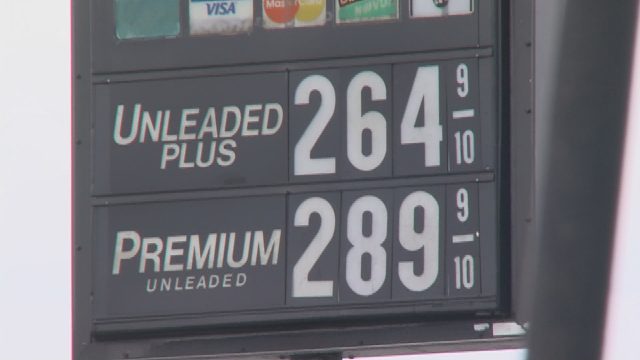Bette Grande: Are Artificially Low Gas Prices Worth It?

As we enter the winter months and spend time warming up our cars and traveling in the cold, we should be happy about the low gas prices, right? The mainstream media is full of stories about the lower gas prices putting money in our pockets, but is that the whole story?
First, some perspective, if you drive 12,000 miles a year and your car averages 20 MPG you will need to buy 600 gallons of gas. If the price drops $1/gal you will save $600, or $11.50 a week. Don’t get me wrong, an extra $600 a year is very nice and the effect on the economy when that number is multiplied by all of the drivers in the US is significant.
There is a lot being said about the money we are saving when we go to the pump but what is the cause and what will the effect be in the months to come? The drop in oil prices has led to a drop in gas prices but there are other effects. Just today, Oasis Petroleum announced that it is cutting capital expenditures by nearly 50% in 2015.
[mks_pullquote align=”right” width=”300″ size=”24″ bg_color=”#000000″ txt_color=”#ffffff”]”If the price drops $1/gal you will save $600, or $11.50 a week. … The artificially low gas price at the pump does not lead to national security if our domestic energy industry is weakened.”[/mks_pullquote]
On December 9, 2014 the price quoted for Williston Basin Sweet was $47.44/barrel and it will be lower today as WTI is dropping to new lows. At this price oil activity and production is being impacted in ND and around the country. And this is obviously Saudi Arabia’s goal. If you think Saudi Arabia is dropping prices so you can save money at the gas pump you are sadly mistaken.
Rob and a few others have done a good job reporting on the jobs and economic opportunity coming from the energy industry since 2009. To the extent any net jobs have been created since 2009 those jobs are in – or supported by – the energy industry.
Many will argue that this is exaggerating the potential impacts of this drop in oil prices; only time will tell who is right. My point is simply that the money we are saving at the gas pump may not help in the long run if jobs are lost or if the State over-spends on the budget.
As I said, over the next several months we will see what other impacts come from the drop in oil prices. Looking forward, the bigger questions are why are we in this position again, and is there anything we can do about it?
I think we can all agree that a robust energy sector is important for our economic and national security. Is it a good thing that our domestic energy producers are subject to the whims of Saudi Arabia or Russia?
The tight oil revolution does not put us at the same level as OPEC or Russia to control oil prices but it does mean we should have a seat at the table in the global energy market. Right now we (the U.S.) are not at the table, we are not even in the room, we are in the hall waiting to hear what the “adults” decide.
It is time to end the ban on crude oil exports. I know the knee-jerk reaction to this statement is negative, but the fact is that this will be a positive change over the long run. Before the progressives add their comments below you should know that the call to end the export ban is bi-partisan. Yes, I am on the same side on this issue as Byron Dorgan!
The ban on crude oil exports has been in place since the 1970’s and it is a ban that is already riddled with exceptions. Certain Alaska and California oil is exempt from the ban as are exports to Canada and Israel for domestic use in those countries. Gasoline and other “refined” oil are also exempt. (A possible silver lining to the decision yesterday requiring the conditioning of ND crude oil is that the conditioned oil may qualify for exemption from the crude export ban.)
Many argue that the export of crude oil is against our national interest, but how do they explain the export of gasoline? Washington likes to make rules and then carve out special interest exemptions. This is not good policy and leads to negative impacts.
Ending the ban on crude export is not a silver bullet; other countries will continue to have much greater impact on global energy issues. But it will have two primary effects for the US. First, it will give us a seat at the table and reduce the strategic advantage of other counties. Wouldn’t it be nice to send barrels of oil overseas instead of our soldiers if we have a say in global energy issues? Second, it will reduce the impact that other countries can have on our domestic energy producers. Our domestic energy producers need some stability to maintain production into the future.
The artificially low gas price at the pump does not lead to national security if our domestic energy industry is weakened. Compare it to our farmers and ranchers. If other countries were allowed to dictate the price of wheat or corn to the point that our farmers could not compete the consumers may win in the short run but pay a far greater price in the long run.
Like it or not we will be dependant on carbon-based energy for many years and this is a global issue. The US must be a participant as a supplier of oil and natural gas not just a consumer.




